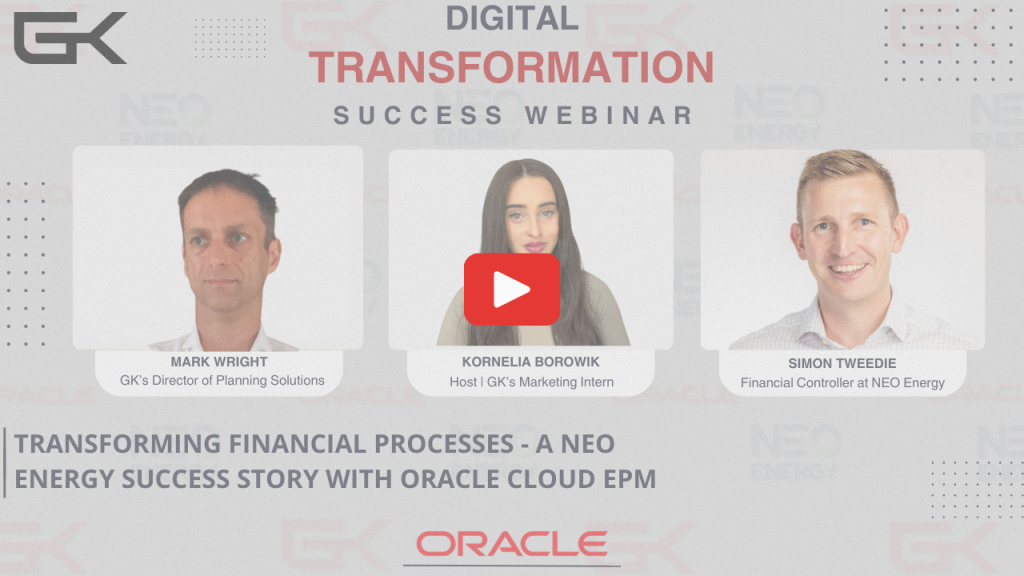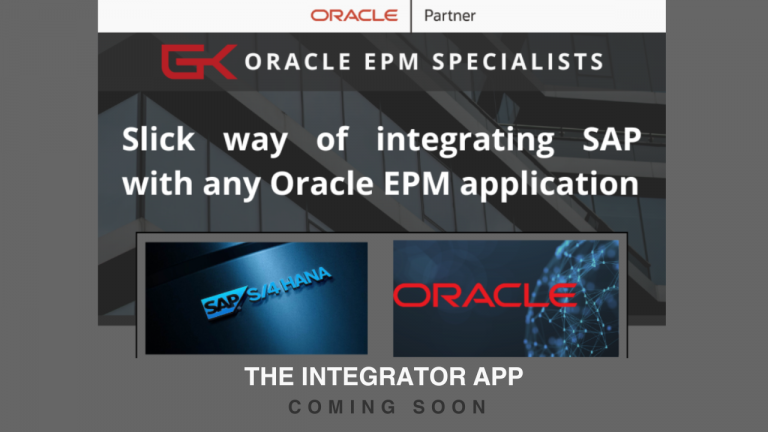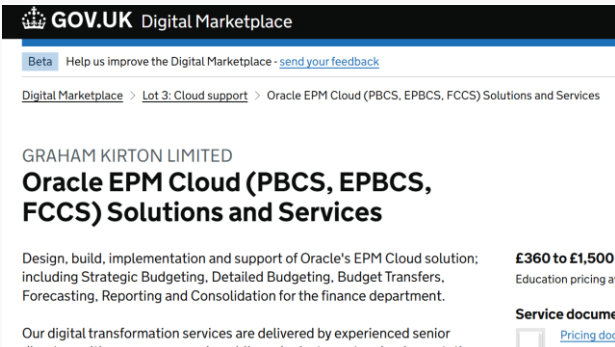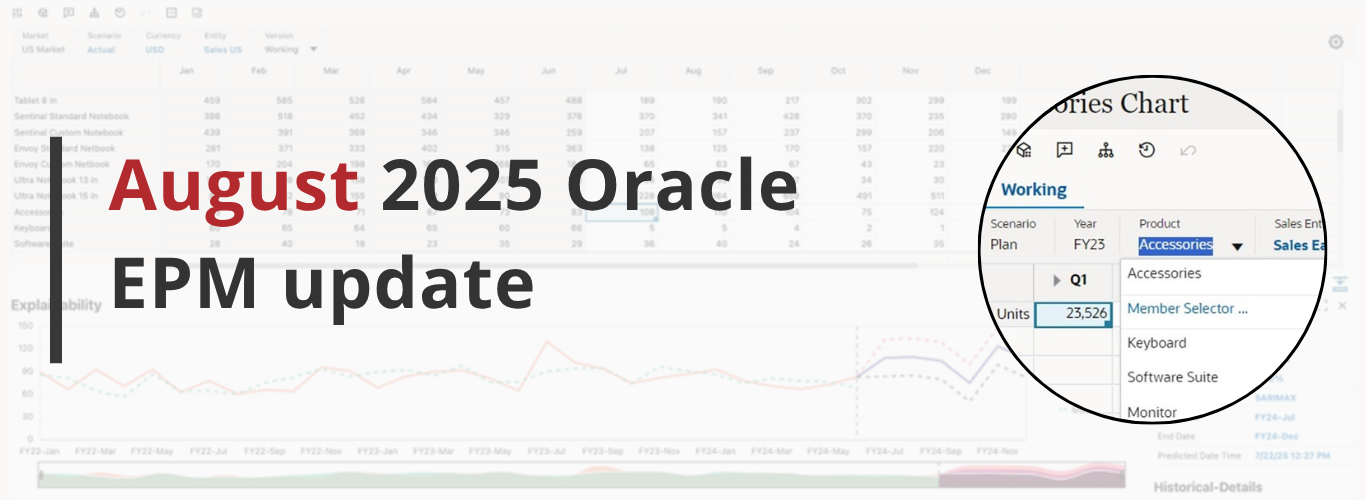
Featured Articles:
July’s EPM Update
At a Glance: Insights arrive in FCCS, GenAI-powered job summaries. New Consolidation Job Analytics use generative AI to deliver user-friendly summaries of job logs – saving time and improving transparency and more cubes for better performance.
Kickstart a digital transformation with EPM
Ed Graham, founder, and director at GK shares why his past experience can help a client implement a successful finance system and why an EPM is the best way to kick start their digital transformation.
Explore Our Method
Mark Wright, Director of Planning at GK shares his experience of working in finance transformation and offers insights on what to expect when working with us.
WARNING - Groovy Rule Validation Required Now
At a Glance:
Groovy rules under review: Oracle’s upcoming Groovy engine update will break non-compliant scripts — use the new validator tool now to stay ahead.
Advanced Predictions go multivariate: New ML-powered forecasting supports multiple inputs for more accurate scenario modelling.
No more blank forms: Default user variables now auto-populate in Forms 2.0 and dashboards, improving usability and form adoption.
A future version of the Groovy engine, which is planned for the second half of 2025, has stricter validation rules that may cause previously valid rules to fail validation.
Oracle is providing a program in this release called the Groovy Script Validator, which validates Groovy business rule scripts to ensure that they will pass the stricter Groovy rule guidelines enforced by the future version of the Groovy engine.
Oracle’s Business Benefit: Providing a Groovy script validation utility helps you find any potential issues so you can resolve them before the stricter Groovy rule guidelines take effect.
GK’s View: If you have Groovy rules in your application you need to act now. The new version of Groovy will break existing rules, please make sure you review or engage someone to review your Groovy rules as soon as possible. We are available to help if required.
Oracle tell us they are aiming for the October 25.10 release which gives you two months to review.

Advanced Predictions Now Available
Advanced Predictions are an extension of Auto Predict, expanding the power of the prediction engine by using machine learning backed by OCI Data Science Cloud.
While Auto Predict and Predictive Planning offer univariate forecasting based on a single measure, Advanced Predictions provide multivariate predictions, looking at multiple input drivers to make the prediction. You train the ML model, which improves the quality of the predictions.
Oracle’s Business Benefit: Advanced Predictions expand the power of the prediction engine by using machine learning and AI to improve your forecasting accuracy:
- Enable more powerful predictions by leveraging more sophisticated algorithms.
- Improve accuracy as it correlates with multiple provided data points.
- Easy to configure and use with the IPM Configuration wizard that can automatically select the best algorithm to use.
- Designed for business finance, embedded in Cloud EPM so it can be used in context, without needing to learn data science.
GK’s Business Benefit: The best use case for predictions is to compare an automated prediction scenario with your normal forecast. Advanced predictions enable multivariate predictions as well as a range of data science algorithms.
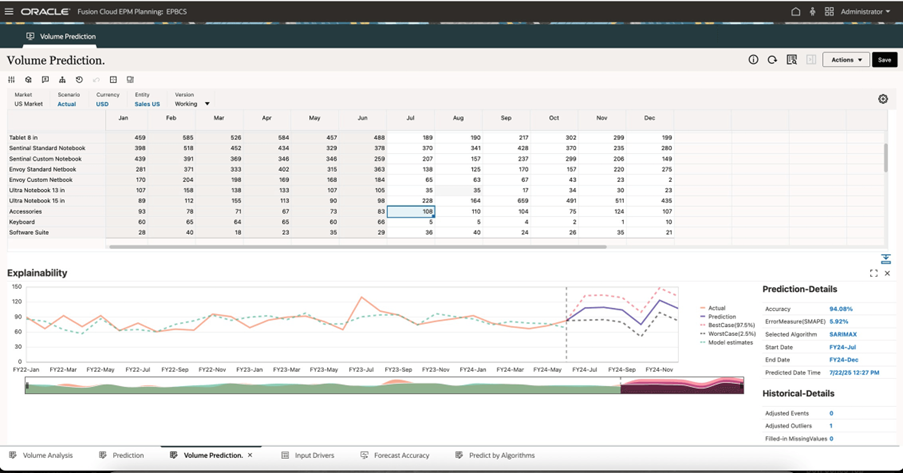
Default Values Automatically Set for User Variables in Forms, and Dashboards
For Forms 2.0, Smart View client, and dashboards, the default values for dynamic and context-sensitive user variables are now automatically set.
Oracle’s Business Benefit: Automatically setting default values for dynamic and context-sensitive user variables in Forms 2.0, Smart View client, and dashboards allows the form to be opened for the first time, in cases where user variables have not been prepopulated. Subsequent cases of opening the form will honour the most recently used values for the dimension members.
GK’s Business Benefit: Previously users needed to set variables before opening a form, this was a one-off task which was difficult to explain to users and limited the uptake of forms with variables. Now the form designer can apply default variables so users can run the forms without confusion.
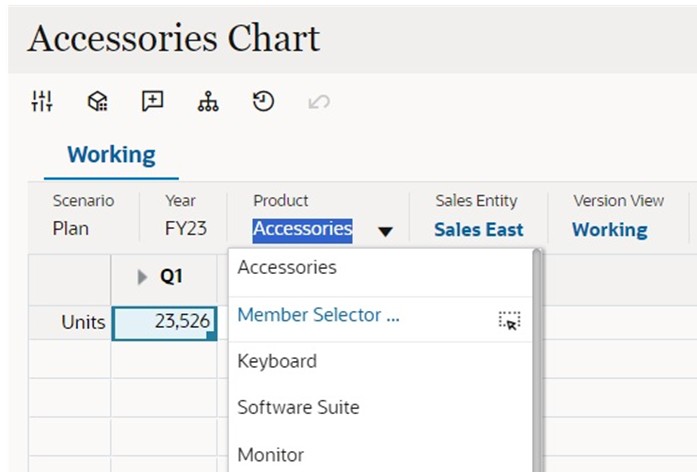
Summary
August’s Oracle EPM update brings crucial changes for developers and finance users alike. Groovy rule validation is now essential, with breaking changes coming as soon as October. On the forecasting side, Advanced Predictions powered by OCI bring new levels of precision through machine learning. And finally, a long-requested usability win – forms now open with default variables already set, streamlining user experience and adoption.
Want to make the most of these updates?
Book a complimentary consultation with our Senior Director to explore how Oracle EPM can streamline and optimise your financial processes.
Whether you’re already using Oracle EPM or just starting to explore its potential, we’ll help you understand which updates matter most to your business, identify automation opportunities, and build a tailored strategy aligned with your goals.
Featured Articles
Attend the roundtable
Enjoy a complimentary lunch in a breathtaking venue – Chat with senior finance & Oracle experts – Speak directly with NEO Energy’s financial expert Prince Philip House, London – a truly beautiful setting for high-level discussions. Don’t miss the chance to register for a complimentary event!




